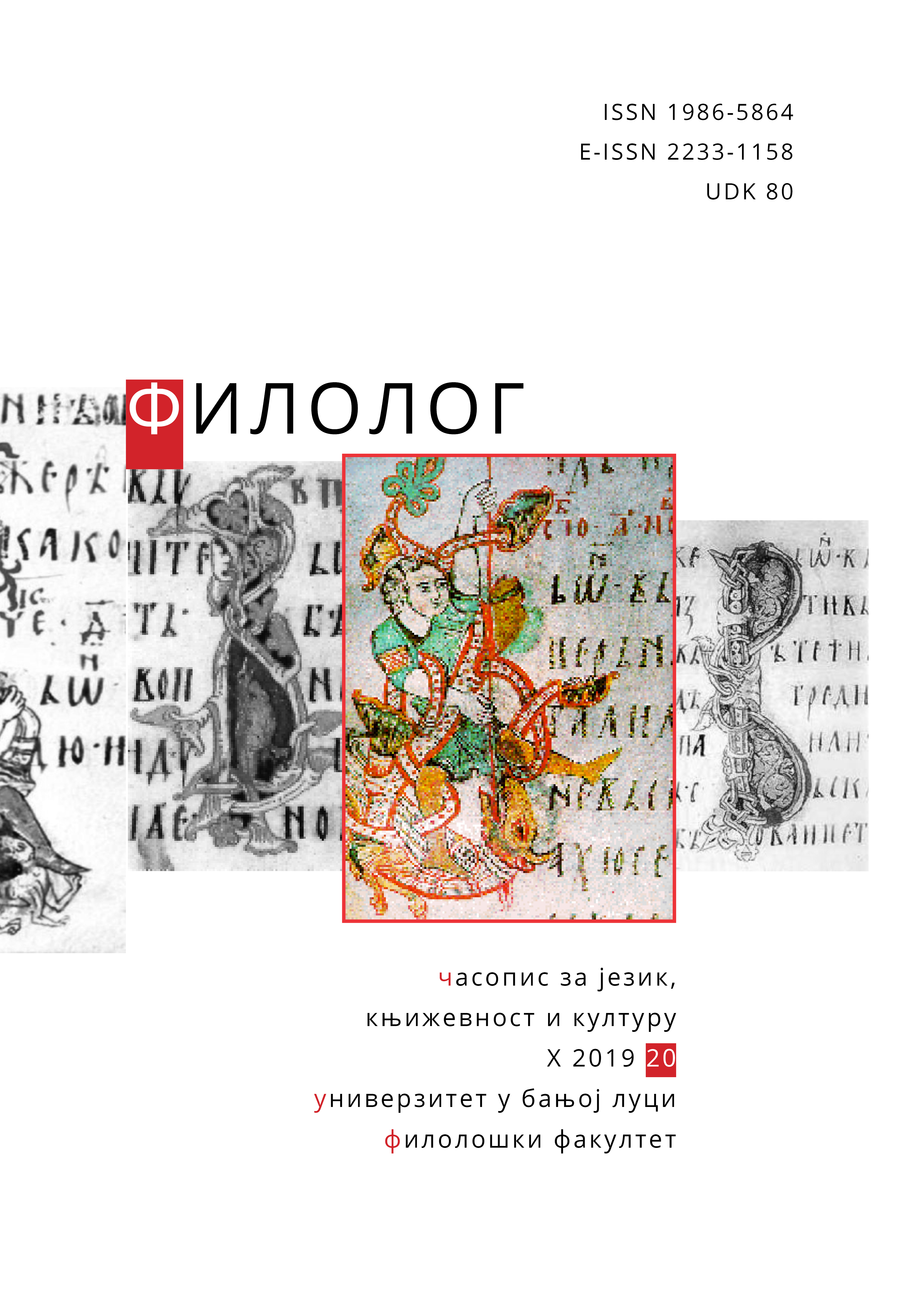О односу генитива и акузатива директног објекта у Роману о Троји
Genitive vs. Accusative of Direct Object in The Novel about Troy
Author(s): Aleksandra L. Colić JovanovićSubject(s): Language and Literature Studies, Syntax, Historical Linguistics, Comparative Linguistics, Serbian Literature, South Slavic Languages, Philology
Published by: Филолошки факултет Универзитета у Бањој Луци
Keywords: Old Serbian language; direct object; genitive; accusative; The Novel About Troy;
Summary/Abstract: The topic of this paper is the relationship between the genitive and the accusative of direct object in the Old Serbian Novel About Troy (XV century). The competition of two cases is attested in the following categories: 1) after verbs of certain semantic classes (verbs of perception and verbs of striving after a goal), 2) after the infinitive which replaced the supine and 3) in negative constructions. In the oldest stages of the Balto-Slavic branch, the genitive government was most likely the only possible, which later gradually started to be replaced with accusative forms. The syntactic, semantic and statistical analysis was provided. After certain verbs and after the infinitive in the primary supine position the genitive is preserved only in traces. In negative constructions, the percentage ratio (55,56% accusative : 44,44% genitive) indicates a strong competition of two forms, with a slight advantage of the accusative, while the selection of case seems to be determined by hierarchies such as referentiality, the force of negation and morphological distinction of cases. In later stages of the Serbian language, the process of replacing the genitive with the accusative goes on, which is probably caused by the intensive development of syntactic transitivity.
Journal: Филолог – часопис за језик, књижевност и културу
- Issue Year: 2019
- Issue No: 20
- Page Range: 176-197
- Page Count: 22
- Language: Serbian

